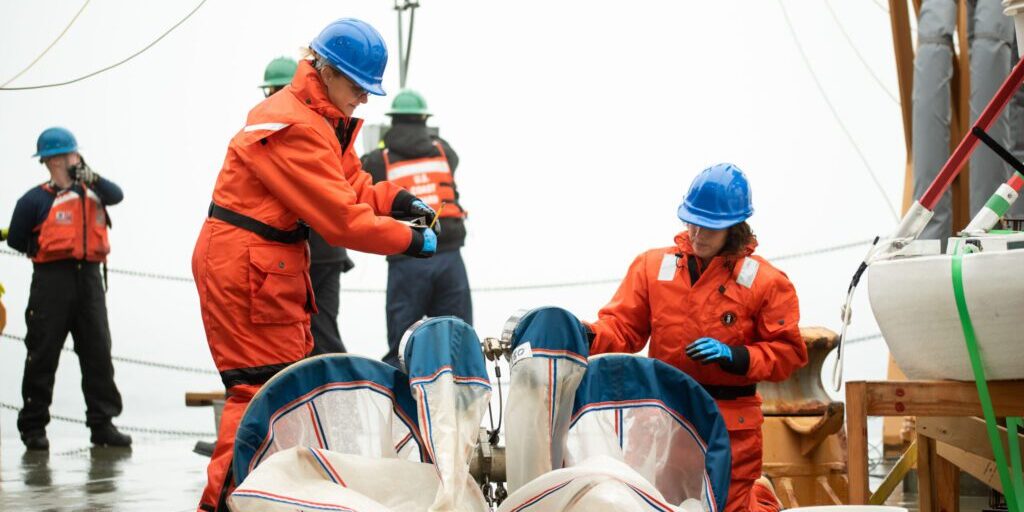A research cruise will collect data starting next week that may provide insight into alarming environmental changes across the Bering Strait region.
Distributed Biological Observatory, or DBO, and Ecosystems & Fisheries-Oceanography Coordinated Investigations, or EcoFOCI, teamed up to launch the cruise. Areas of interest include monitoring marine life, sampling chemical and physical properties of the water including temperatures, and observing algal levels to find harmful algal blooms, or HABs. Catherine Berchok, an acoustician with the National Oceanic and Atmospheric Administration, or NOAA, encouraged community members to contact her with input on any other areas they want to propose data collection for.
As for the areas of marine life the cruise is investigating, the researchers will collect data on zooplankton, larval fish, seabirds and make brief noting of any mammalian organisms spotted.
One of the main areas of concern is harmful algal blooms in the Bering and Chukchi seas. This cruise seeks to find more data about where HABs are located, and the implications of marine life ingesting these toxins. HABs can cause various types of poisoning in some marine animals including amnesic shellfish poisoning and paralytic shellfish poisoning. The spread of these toxins through the food chain is still being studied.
DBO and EcoFOCI will study what environmental conditions allow for higher rates of germination in blooms. As ocean temperatures rise, conditions become more fit for higher germination of cysts, which are produced by a common HAB. Berchok says these cysts then can create more blooms which would increase the levels of ingestion of the toxins into common marine life.
“This is a concern for your region, because some of the highest cyst densities in the whole world are occurring in the Arctic inner region,” Berchok said.
Berchok noted that all of those working on this cruise want to become better partners to the residents of this region with their data collection, and to have a better dissemination of what they find. She is the main contact for areas of proposed investigation or on ideas of how to involve the public more in the work of this cruise. She can be reached at the phone number (206) 526-6331, or preferably by the e-mail catherine.berchok@noaa.gov.
The research cruise departs from Seward on, Sept. 2, heads north to the Northeast Chukchi Sea, and from there will turn southbound after two weeks. DBO and EcoFOCI will complete their cruise in Kodiak by early October.
Image at top: NOAA Fisheries Scientists. Photo shared with permission from Janet Duffy-Anderson. Photo by Lindsey Leigh Graham (2019).




